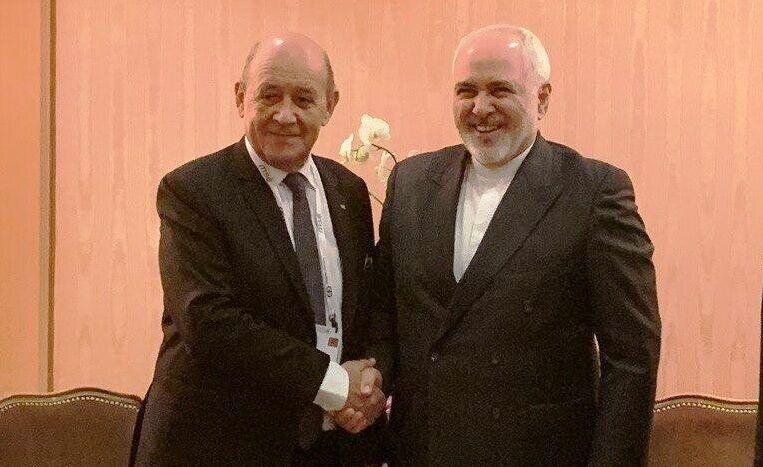Iran urges E3 to fulfill JCPOA obligations if they want nuclear standoff solved

MUNICH -- The only path to put an end to the current nuclear standoff between Iran and the Europe is that the European trio, also called E3, fulfill their undertakings under the Joint Comprehensive Plan of Action (JCPOA), Foreign Minister Mohammad Javad Zarif said on Saturday.
In a meeting with his French counterpart Jean-Yves Le Drian on the margins of the Munich Security Conference, Zarif underscored that France, Germany and Britain should return to their commitments, noting that honoring commitments will settle the existing dispute in the most appropriate way.
"The way that the E3 is currently pursuing does not help resolve the problems," Zarif added.
The two chief diplomats also exchanged views over bilateral ties and regional developments.
Zarif said on Friday that Iran’s decisions to reduce nuclear commitments are reversible if Europe takes “meaningful” steps in preserving the 2015 nuclear deal.
Zarif reiterated Iran’s stance that all of its moves to ramp-up its nuclear program in the past few months are reversible, “providing that Europe takes steps that are meaningful”, according to AP.
The U.S. has been pressuring other parties to the deal to pull out as well, but German Foreign Minister Heiko Maas told the forum that Germany rejected the U.S. tactic of “maximum pressure” on Iran.
“We are sticking firmly to our course in the Middle East, and that is de-escalation instead of maximum pressure,” he said.
EU foreign policy chief Josep Borrell said that Europe must ensure Iran’s benefits from the nuclear deal if it wants the deal to survive.
“If we want the Iran nuclear deal to survive, we need to ensure that Iran benefits if it returns to full compliance,” he wrote in an article in the Project Syndicate published on February 8.
Borrell was notified in January by Paris, London, and Berlin that they had triggered the dispute mechanism.
He has said that the EU will extend indefinitely the time limit to resolve disputes in the nuclear deal to avoid having to go to the UN Security Council or triggering new sanctions.
“There is an agreement that more time is needed due to the complexity of the issues involved. The timeline is therefore extended,” Borrell said in a statement on January 24.
In May 2019 Iran started to reduce its commitments to the JCPOA at bi-monthly intervals in response to the abrogation of the pact by the U.S. coupled with the European Union’s inaction to shield Iran’s economy from sanctions.
On January 5 Iran took the fifth last and final step, announcing that it no longer observes any limit under the JCPOA.
MJ/ PA
